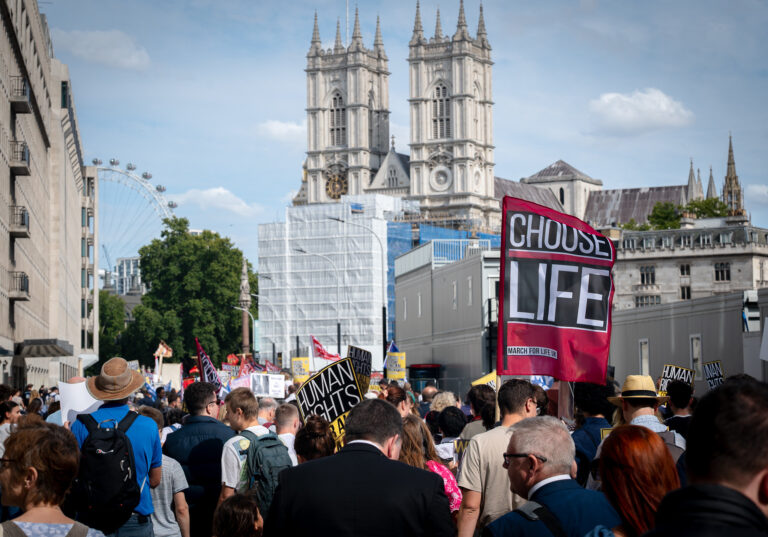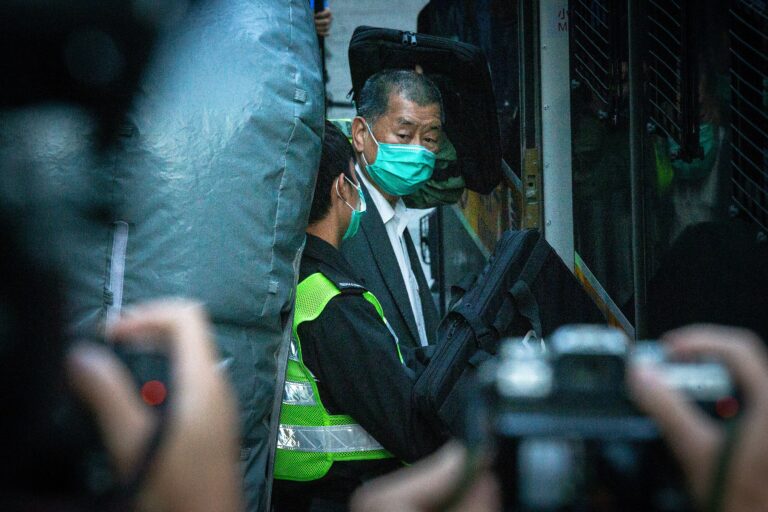When the explorers discovered the West Indies and America, they marked their conquest by planting the flag of their country, symbolizing their entitlement to the territory. In war, soldiers rush to claim enemy territory by raising their country’s flag to signal to all the new ground which belongs to them.
There has been a battle of another type going on for the past fifty years. This war has not been fought with bullets. The conquest has been slow, deliberate and subtle; countries have been defeated from within. The weapons were political, economic and philosophical. This battle, led by the industrialized countries, was waged from the “common ground” claimed by the United Nations.
Two flags have been raised in the United States, laying claim to a “territory within a territory.” One flag flies over UN headquarters in New York City; the other flies over the newly-dedicated UN Peace Plaza in San Francisco. Hopefully, they are not marking boundaries.
We the people: the future of the UN
A meeting was held in San Francisco on 22–24 June 1995 celebrating the United Nation’s fiftieth anniversary. In this fiftieth year, the UN has declared the existence of a world crisis. There is only one solution. The people of the world must give power and money to the UN which will then solve the world’s problems.
Solving the world’s crises will also help resolve the UN’s mid-life crisis caused by a lack of direction and insufficient funds to match the personal ambitions of those who see themselves as world leaders. In order to consolidate their leader-ship, and expand funds and influence, the UN, on the occasion of their 50th anniversary called upon “experts” to restate and reassert UN goals. In this way, UN leaders hope to guarantee power and money for the organization over the next fifty years.
How to continue the conquest for power in the next fifty years is a problem! The UN and the Group of 7 must grow, and Grow, and GROW! The prize? Blue flags flying from the city hall of every hamlet, village, town, city, state and country on Planet Earth; blue helmets on more and more armies of rented “peace makers!” How to do this is a puzzle. One must capture the allegiance of the people! Gather all the people into one fold — and keep them there. The new emphasis of the United Nations, therefore — now that political and economic structures are in place — will be through the unified “civil society!”
Many “birthday guests” were invited to San Francisco to commemorate the 50th birthday of the United Nations. Some had been present at the signing of the UN Charter in 1945. The gathering of the people together — the global scholars, legal authorities, ambassadors, Nobel Laureates, world leaders, and even the well-paid non-governmental organizations (NGOs) — was designed an impression of solidarity. Invite everyone to offer recommendations, to participate in the jostle for inclusion among the powerful and the rich! Peddle influence! Who wants to be poor and weak! Join the party and prepare for the 21st century.
The theme of the three day conference was, “We the Peoples…The Role of Civil Society .… “ Of course. There isn’t any sense in clambering onto the stage if you don’t have a role to play! Never fear, there were “role models” of NGOs even at the founding of the UN; they acted as UN advocates. They willed to be used!
Looking to the future, there must be a plan of action and an expansion of “civil society‘s” role in gathering funds, increasing the effectiveness of those-who-know and controlling the uneducated hordes of the world. First however, we must figure out who belongs to the civil society and what they can do “to make the UN operations effective.”
Turn to the experts for answers
Dr. Lincoln Bloomfield is a learned man. He is Senior Staff Member at the Center for International Studies at Massachusetts Institute of Technology and a UN Scholar. “Civil society.” said Dr. Bloomfield knowledgeably, “is [that] which occupies the space between government which is at the top and the mass of individuals at the bottom.” Dr. Bloomfield explained again, this time specifically. “Civil society,” he said, “is comprised of private voluntary groups of associations and coalitions that aren’t governmental.”
A note of explanation is necessary when statements about organizations which are “not governmental” are made. To be “governmental” refers to being organized or “institutionalized” by government, it does not mean that participants in the civil society do not take government monies. A major number of NGOs receive significant portions of their funds from government.
In their report, Our Global Neighborhood by the Commission on Global Governance, civil society “covers a multitude of institutions, voluntary associations, and networks — women’s groups, trade unions, chambers of commerce, farming or housing co-operatives, neighborhood watch associations, religion-based organizations, and so on.” Others would add to that list academic organizations and research institutes.
Sir Shridath Ramphal, co-chairman of the Commission described the new role of NGOs. Sir Shridath said: “they must occupy a more central place in the structures of global governance than has been the case; their relationship between the UN and the worlds’ people is at the very heart of the work and report of the Commission. We are convinced at the UN that health, vigor and success depends on the extent to which people identify within and feel it to be their organization, their UN”
According to James Gustave Speth, Administrator of the United Nations Development Programme (UNDP), “UNDP is committed to improving the dialogue between governments and civil society organizations so that they can help institute the multitude of programs and plans as agreed to at t11e various UN Conferences since Rio.”
Speth continued, “We need CSO’s (civil society organizations which are NGOs associated with the new “civil society”) to help fulfill our shared vision of sustainable human development .… a solid and mutually beneficial partnership is absolutely necessary to meet this vision.”
Then, Speth spoke truly: “Talk about the full emergence of the organizations of civil society into your rightful and inevitable role in international governance; this is where the future actually lies and the UN has got to be the midwife to that future. In the end, the battles for sustainable human development will be won or lost not in the corridors of governments, not in the halls of the UN, but in every hamlet, village, home and town of every member of the global community and in every institution of civil society.”
UN plans are not predicated on escape for a single individual! Society is to be penetrated, saturated, and monitored by NGOs (or CSOs) aggressively promoting an ideology of total control. Don’t expect help from your families! Only “individuals” allowed here. We can’t have anyone “getting between thee and me.” The individual is to stand naked before the powers of the state after having been corralled and roped by the NGOs.
The concept of “human security”
In the Human Development Report I994, the UN devised a concept of “human security” which focused on the security of people in their homes, jobs, communities, and their environment. This included “sudden and harmful disruptions” in the patterns of daily life.
Shridath Ramphal (Guyana), former president of the British Commonwealth, and co-chairman of the Commission on Global Governance, reported two specific recommendations from the Commission which were intended to “enhance” human security and give the impression of input into decision-making.
First, create a forum of civil society which would meet annually before the session of the UN General Assembly in order to provide input and a chance to exercise influence over UN deliberations on “key global issues.” Second, create a “Council for Petitions” in which a “new right of petition” could be exercised by CSOs. There, before the civil society, “sudden and harmful disruptions” in your country could be reported to the “UN Council for petitions.” In order to create a Council for Petitions, the UN Charter would have to be amended. CSOs could then act as UN controls in each country and “mediate peace within that country.”
NGOs previous accomplishments at the UN
Joan Dunlop, president of the International Women’s Health Coalition, former protégé of John D. Rockefeller, member of the Population Council Board, said, “NGOs have created and led a progressive agenda in the UN mega-conferences for the last four or five years…the organized women’s movements (US) have acted and reacted on the status quo and have •produced reform and [a] progressive agenda”
In response to the voices of those who disagreed with the UN policies at recent UN conferences, Ms. Dunlop said, “Now we know that we face a challenge to our idealism…To meet this challenge will take vigilance, discipline, stamina and money…this is a race for the hearts and minds of sensible people and the planet is the prize.”
Rachel Kyte from the International Policy Action Committee of WEDO, spoke up, “The success of the women’s movement in shap[ing] the UN agenda is simple. Women were able to make the foray. In Cairo for the first time, the organized women’s health and rights movements became not just one of the forces kicking the ball around the playing field but became the corner post of the playing field. They became the reference point. It was their position to which governments deferred in order to stretch the political space necessary to come to a consensus and reach decisions.” Ms. Kyte, a lesbian, also complained about those from opposite views who appeared uncomfortable with her lifestyle.
Conclusion
The UN and the US-led women’s movement are part of a global philosophy which does not recognize life, the ability of the planet to sustain itself, the command of God to procreate, and His plan for man, woman and the family.
The emphasis on civil society by the United Nations reveals the planned course of action. The next UN war is to be directed at the grassroots level, against the people of the world, in the heart of our communities, in our homes and schools, targeting family members, attempting to isolate “individuals” in our midst in order to control them. We are to be monitored, pressured, spied upon and reported to the United Nations if NGOs, who police our communities, define us as “harmful disrupters.”
Perhaps this summarizes the new battle for the turf of the world. The United Nations and their CSOs and NGOs must be kept in check. We must not allow them to raise their flag, or claim our lands anymore. It is imperative take back our territories, protect our communities, homes, families and personal relationships. It is there that we must raise our flags and stake our claims.
Joan Veon is an activist, a specialist in financial issues, a free lance journalist, and a member of the broadcast media.







